Reintegration and recognition were on the agenda as the Army surgeon general visited with Soldiers Nov. 24 during his visit to Fort Campbell.
Lt. Gen. Eric B. Schoomaker, the Army's 42nd surgeon general, joined Fort Campbell's newest leader, Deputy Commanding General (Rear) Brig. Gen. Stephen Townsend; and Commanding General for the 101st Airborne Division (Air Assault) and Fort Campbell Maj. Gen. Jeffrey J. Schloesser's wife, Patty, as the Surgeon General officiated over the presentation of two Purple Heart awards to two members of the Fort Campbell team - Sgt. Tim Carr and Sgt. Maj. David Allard.
Schoomaker began the ceremony by acknowledging the significance of the Purple Heart medal to other warriors, Family members and distinguished guests.
This medal sends a message to all who see it that these Soldiers served and sacrificed for their country, and they deserve great respect, he said. After a few more words from The Surgeon General, Townsend awarded the Purple Heart to the Warrior Transition Unit Soldiers as friends, Family and coworkers looked on.
During his visit to Fort Campbell, Schoomaker also reviewed reintegration operation services being performed by Blanchfield Army Community Hospital (BACH) staff and how the effectiveness of those services impacted more than 10,000 Soldiers who returned to Fort Campbell from Iraq and Afghanistan since January 2008. Since that time, more than 48,000 medical readiness visits have occurred for Soldiers either pre-deployment or reintegration related.
Schoomaker met with recently redeployed Soldiers of the 159th Aviation Brigade. Col. Ron Lewis, 159th Brigade commander, and some of his Soldiers from C Company's Medical Evacuation Unit and F Company's Air Traffic Control Unit spoke about their experiences with the reintegration process.
This open communication provided Schoomaker with some honest feedback on the services his medical professionals are providing and some suggestions on improving those services.
The Surgeon General's next stop was a luncheon with BACH leadership and providers who recently redeployed to the post, during which he acknowledged BACH Commander Col. Richard Thomas with the Army "A" Proficiency Designator. The Army "A" Proficiency Designator is awarded to physicians and surgeons who are nationally and internationally recognized for expertise in their medical specialty.
Afterwards, the general received a briefing on the behavioral health assets the hospital has to offer, traumatic brain injury and post traumatic stress treatments Soldiers receive, and the reintegration process.
Schoomaker got a first-hand look at the process while visiting the Soldier Readiness Processing (SRP) site where up to 600 Soldiers a day go through the medical readiness process. While there, he spoke with returning 2nd Brigade Soldiers. The Surgeon General said he was most interested in identifying areas of stress and focusing on treatment for affected Soldiers and their families.
Taking care of each other and our Families is one of our top priorities, said the general. This is especially true about those Soldiers that don't have any visible injuries.
Following the SRP site visit, Schoomaker got an opportunity to tour the Automated Neuropsychological Assessment Metrics (ANAM) testing building. ANAM is a computer-based tool designed to detect speed and accuracy of attention, memory and thinking ability of patients by recording their performance through responses provided on a computer. Fort Campbell served as the first post to conduct the testing prior to deployment and again following the return from deployment. Data gathered from Screaming Eagles will help identify cognitive impairments and direct treatments for the Soldiers.
The general took the time to speak to Soldiers before and after their tests and asked them how they are currently handling the reintegration.
"We want to offer you counseling or anything else we can provide," he said. "Talk to us, talk to your chain-of-command (to receive the help you need)."
Schoomaker told the Soldiers it is common to experience sleep loss, unpleasant thoughts about combat experience and to feel stress among Family after an injury, and encouraged them to help take care of each other. "When you notice that your battle buddy or fellow Soldier is acting differently, help him/her find the help (they) need."
Just prior to leaving the installation, Schoomaker stopped in the recently opened post traumatic stress (PTS) and traumatic brain injury (TBI) center. While there, he spoke with several WTU cadre members about the challenges they face, and assured them that they are doing great work. The comprehensive care plan is working well for Soldiers, the Surgeon General said, and he encouraged cadre to continue to rely on their instincts and training as they continue to offer superb care to wounded and ill Soldiers.
Schoomaker spoke with several Soldiers receiving treatment at the center, in addition to staff members before returning to Washington D.C.
He reminded all that "It is our duty to take care of each other, to make us the strongest force we can be."
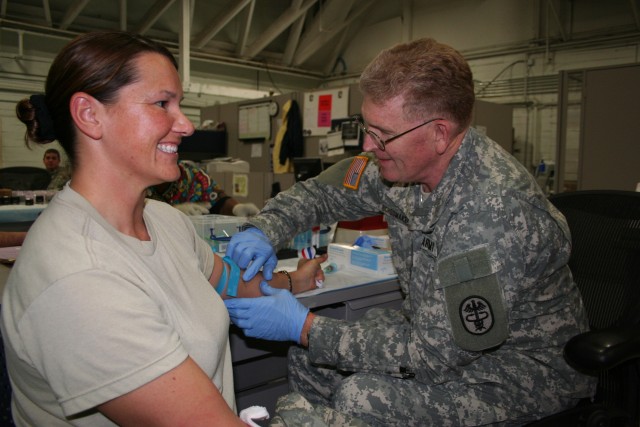
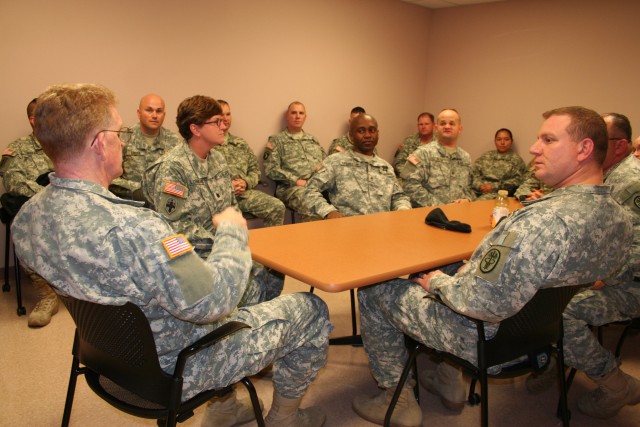
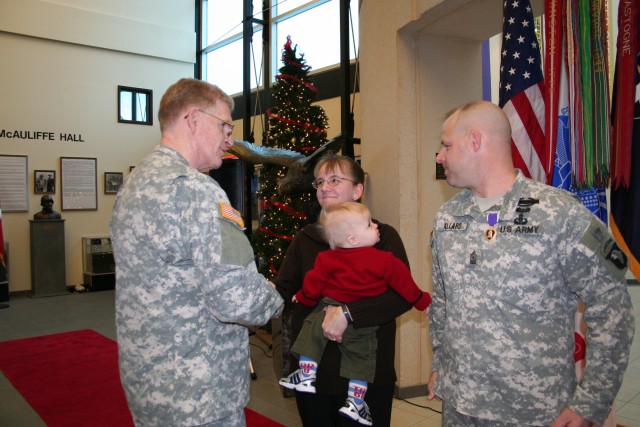
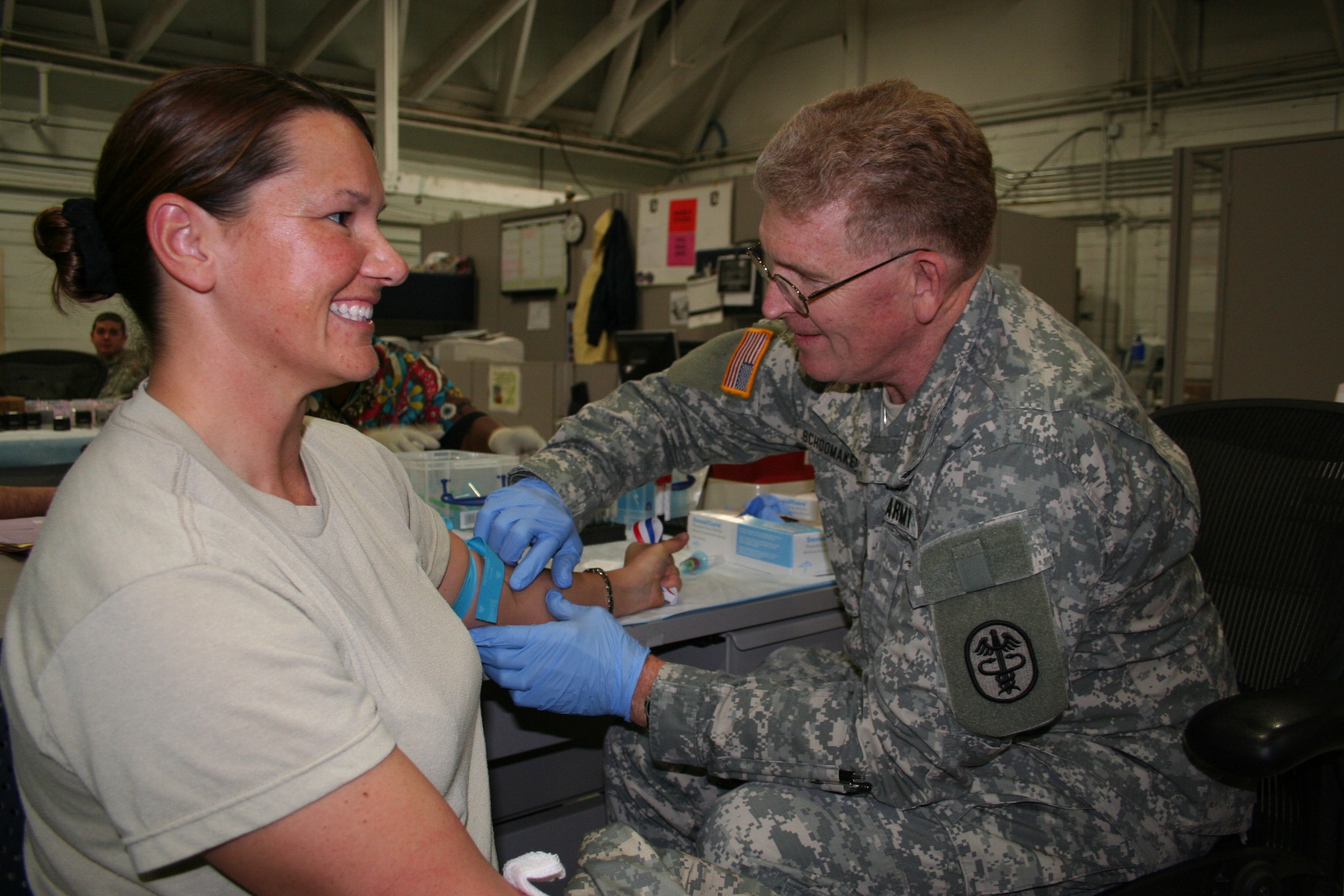
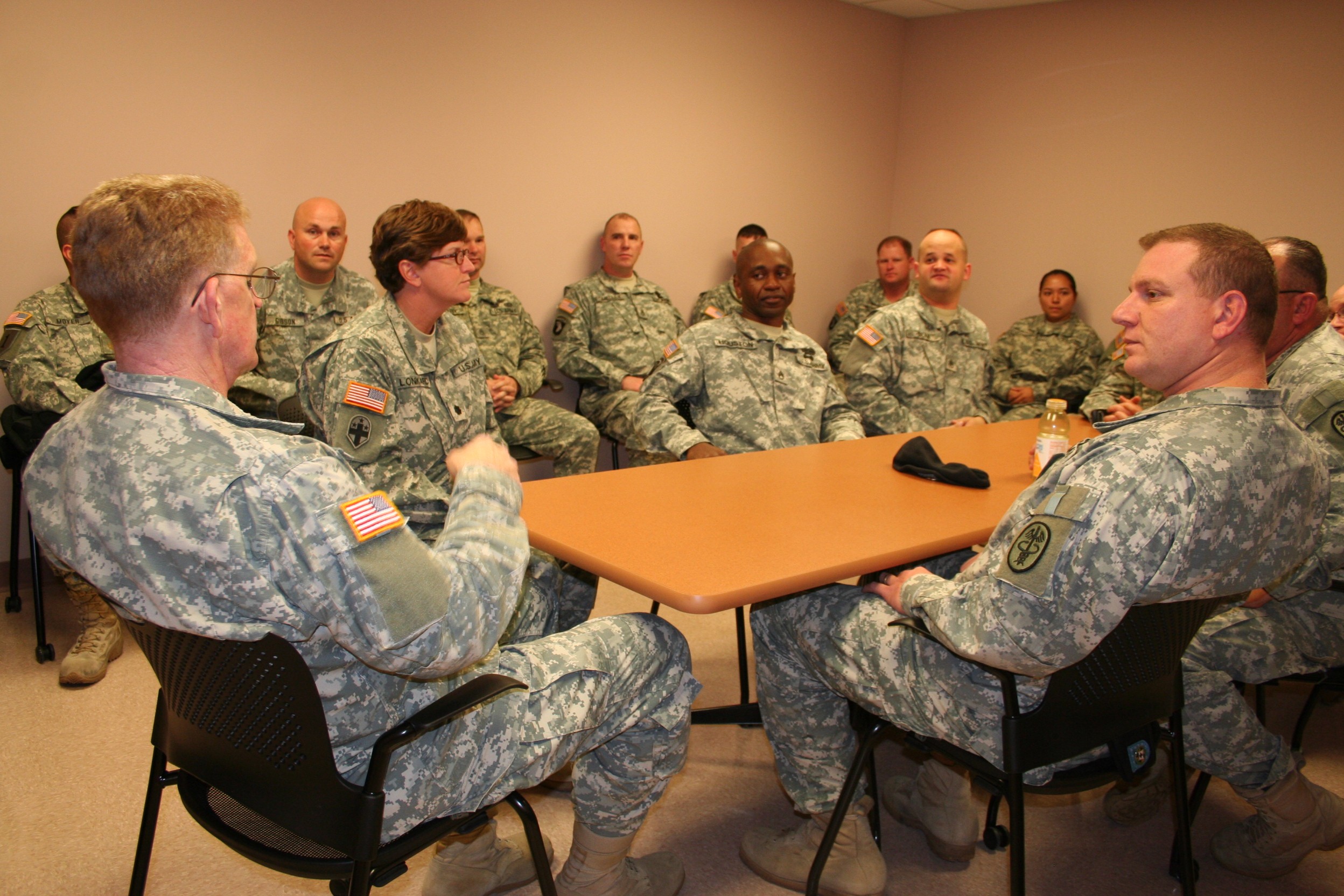
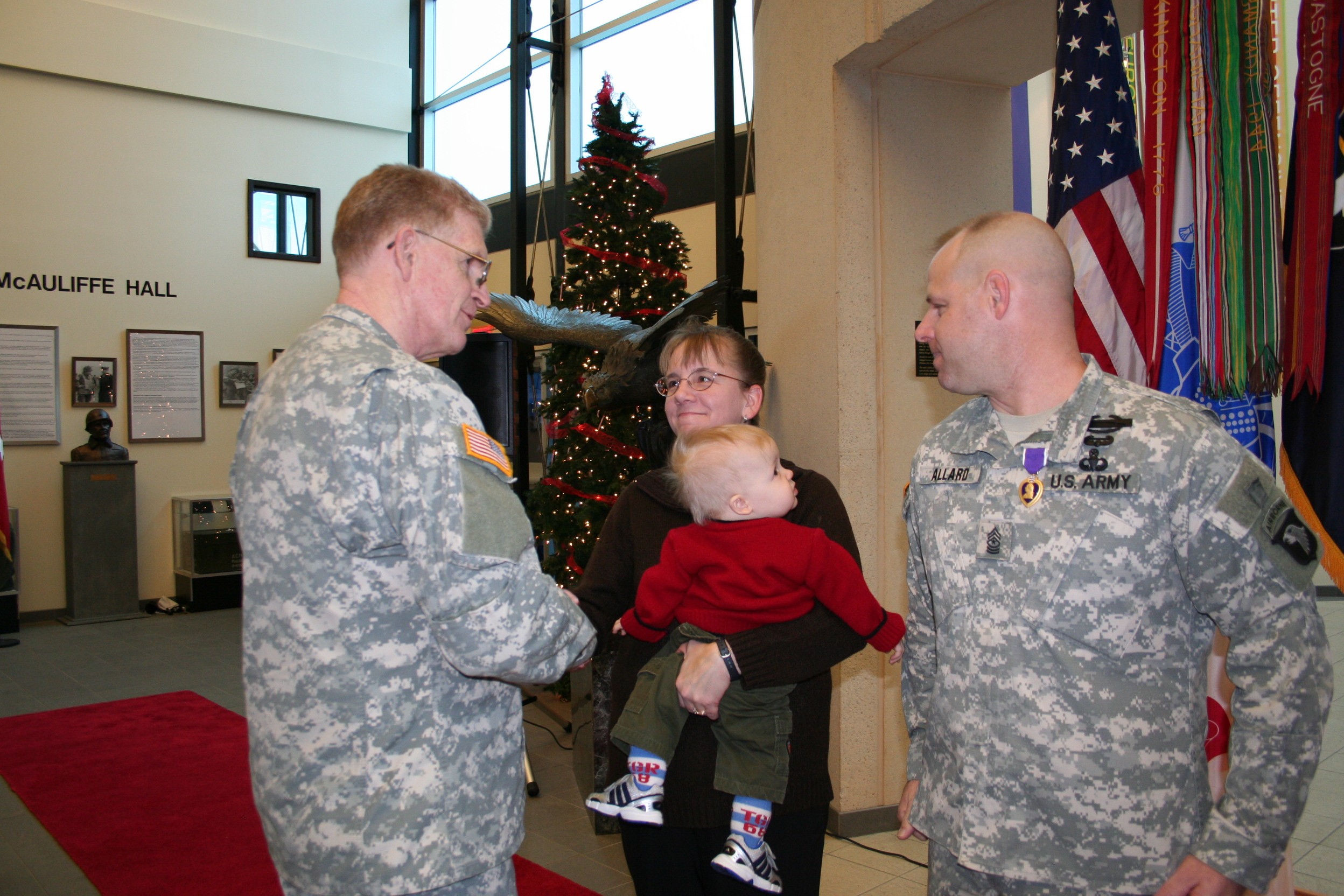
Social Sharing